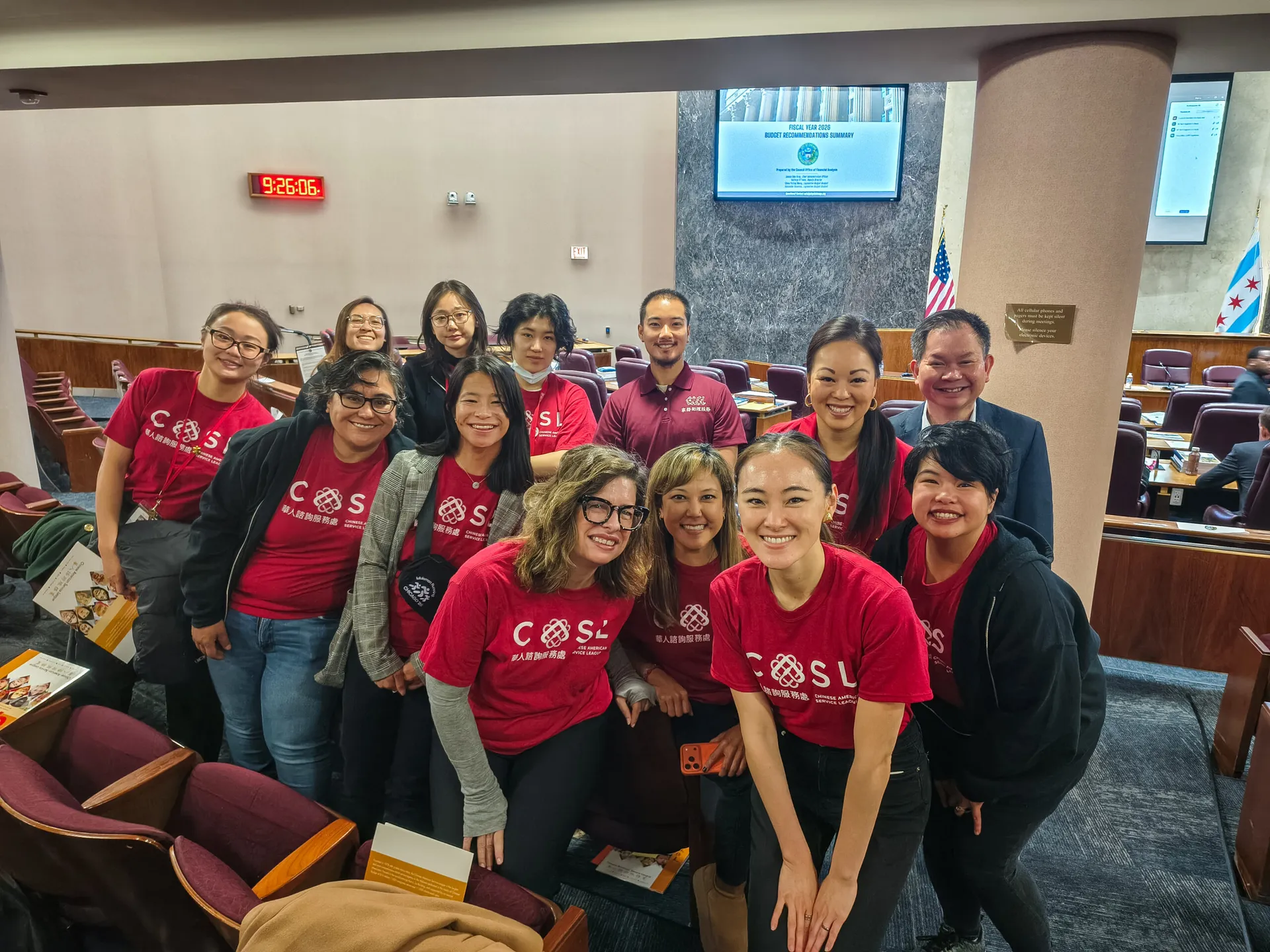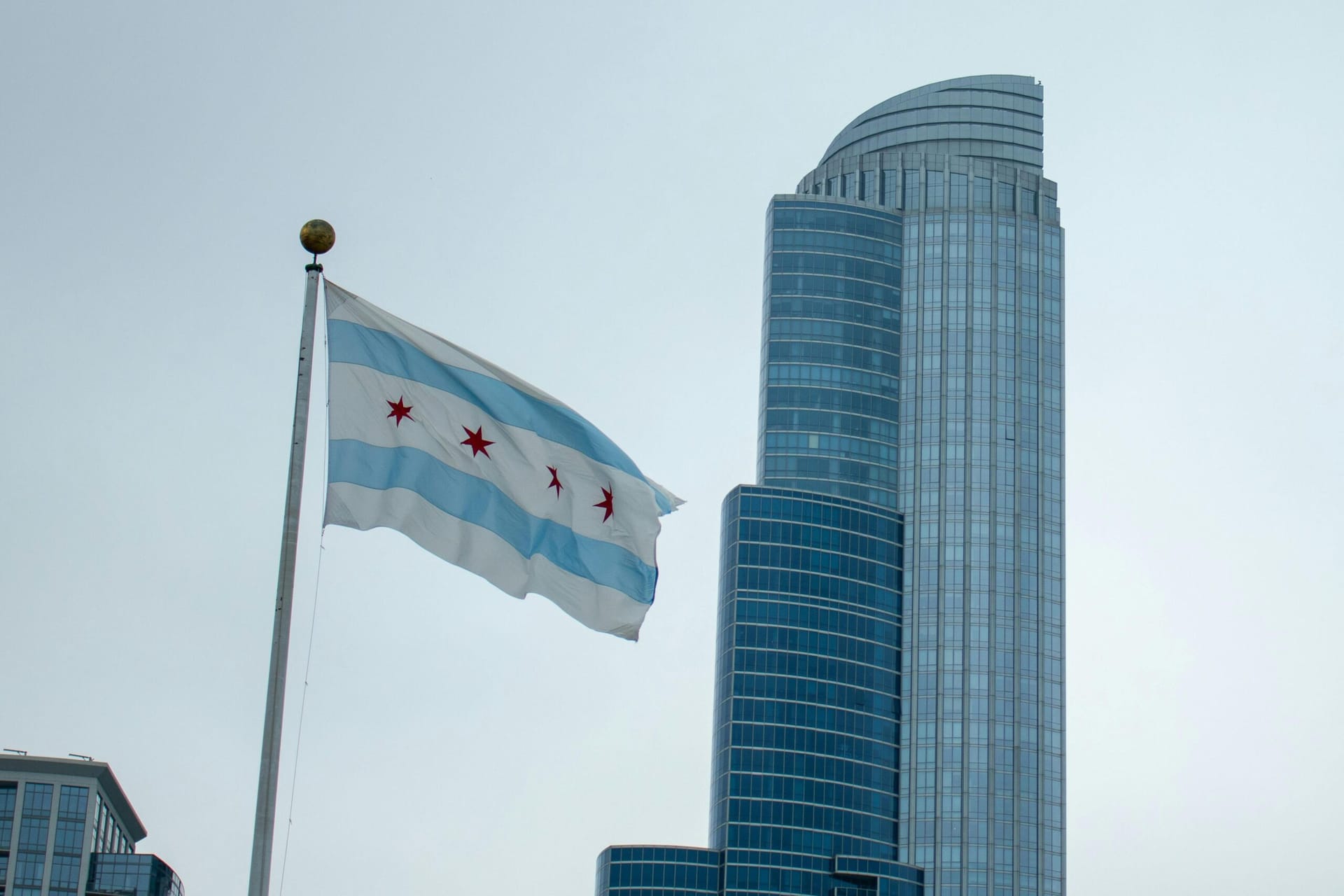Share this post

CASL Advocacy Day 2025: Raising Community Voices at Chicago City Hall
On Thursday, October 30, 2025, CASL joined community leaders and policymakers at city hall for the Chicago City Budget Hearing.
Civic Engagement & Advocacy
Educational
Health and Wellness
A team of dedicated teachers, behavioral health counselors, and advocates from CASL met with city officials to ensure that the diverse needs of multi-generational, mostly low-income families were acknowledged in the shaping of the city’s FY26 budget.
Thy Nguyen, CASL’s Vice President of Impact & Advocacy, testified before the Committee on Budget and Government Operations, co-chaired by Ald. Jason Ervin and Ald. Nicole Lee.
CASL’s advocacy platform highlighted three core advocacy priorities: strengthening childcare for children with special needs and out-of-school support, investing in behavioral health and caregiver services, and improving data equity for Asian American, Native Hawaiian, and Pacific Islander (AANHPI) communities.
Advocacy Priority #1: Education and Youth
 CASL called for increased funding for the Child Care Assistance Program (CCAP) and Out of School Time (OST) programs, both of which are foundational to family stability, educational access, and youth development. High quality childcare and afterschool programs are proven crime prevention strategies because they provide safe, structured environments that keep youth engaged, supported, and connected to positive role models.
CASL called for increased funding for the Child Care Assistance Program (CCAP) and Out of School Time (OST) programs, both of which are foundational to family stability, educational access, and youth development. High quality childcare and afterschool programs are proven crime prevention strategies because they provide safe, structured environments that keep youth engaged, supported, and connected to positive role models.
Currently, CCAP provides the same daily reimbursement rate regardless of whether a child requires specialized support through an Individualized Education Program (IEP). However, the cost of serving children with developmental delays, including neurodivergence, can be as high as $200,000 per year when factoring in staffing such as paraprofessionals, nurses, and special education teachers.
CASL is one of the few bilingual and culturally responsive early childhood centers in the area equipped to serve children with IEPs. However, community demand far exceeds current capacity, and the gap between available funding and the true cost of care limits the number of children CASL is able to enroll.
As Cindy La, Director of Children & Youth Services, shared:
 CASL also emphasized the need to raise the per-child funding for OST programs. Currently, funding amounts to just $1,800 per child per year — or roughly $5 per day — which is not enough to cover year-round program supplies, meals, staff salaries, enrichment materials, or individualized learning supports. In the past three years, CASL’s OST programs have grown from 32 to 135 students across elementary, middle, and high school.
CASL also emphasized the need to raise the per-child funding for OST programs. Currently, funding amounts to just $1,800 per child per year — or roughly $5 per day — which is not enough to cover year-round program supplies, meals, staff salaries, enrichment materials, or individualized learning supports. In the past three years, CASL’s OST programs have grown from 32 to 135 students across elementary, middle, and high school.
CASL Youth Instructor Emmeline Song illustrated the stakes:
CASL’s ask is clear: increase CCAP reimbursement rates to reflect the real cost of inclusive care and raise OST funding to sustain high-quality, year-round learning environments.
Advocacy Priority #2: Health and Human Services
CASL also highlighted the importance of continued investment in the Mental Health Expansion Initiative (MHEI), which supports community-based behavioral health services. For many residents, culturally and linguistically matched care is essential for trust-building and effective support.
In addition, CASL stressed the need to increase funding for Caregiver Support Services, which provide essential respite, education, and wellness resources for individuals caring for aging family members. These services directly address the challenges faced by families navigating disability, chronic illness, and intergenerational care.
CASL encouraged the city to ensure these programs remain sustainably funded to meet growing community demand.

Advocacy Priority #3: Data Disaggregation
 In his testimony, Thy Nguyen spoke to the critical need for standardized data disaggregation across City agencies. Currently, Asian American, Native Hawaiian, and Pacific Islander (AANHPI) residents are grouped under a single broad racial category, despite representing over 50 ethnicities and 100 languages. In Chicago, the AANHPI has seen an 11.5% increase in the past four years, now making up about 8% of the city’s population.
In his testimony, Thy Nguyen spoke to the critical need for standardized data disaggregation across City agencies. Currently, Asian American, Native Hawaiian, and Pacific Islander (AANHPI) residents are grouped under a single broad racial category, despite representing over 50 ethnicities and 100 languages. In Chicago, the AANHPI has seen an 11.5% increase in the past four years, now making up about 8% of the city’s population.
Thy explained that the current data approach masks wide disparities in poverty rates, health access, and educational attainment — preventing equitable funding, program design, and policy solutions.
Thy stated:
“Without disaggregated data, disparities stay hidden. When we group all AANHPI communities together, we mask real differences in access, income, and health outcomes. This prevents equitable funding and policy decisions.”
CASL urged the city to standardize data collection practices within DFSS, CDPH, and other major agencies to better illuminate community needs and shape meaningful solutions.
Meetings with City Leadership
 Throughout the morning, CASL staff held conversations with Chicago elected officials including:
Throughout the morning, CASL staff held conversations with Chicago elected officials including:
- Ald. Byron Sigcho-Lopez (25th Ward)
- Ald. Nicole Lee (11th Ward)
- Ald. Leni Manaa-Hoppenworth (48th Ward)
These meetings offered opportunities to discuss program impact, family needs, and long-term strategies for sustaining culturally responsive care across Chicago’s south and southwest neighborhoods.

Looking Forward
Participation at Advocacy Day is just one of several ways CASL advocates for funding and support for clients and the community. CASL will continue collaborating with policymakers, agency leaders, and coalition partners across the city and state level to:
- Ensure inclusive early learning is accessible to every child
- Strengthen after-school and youth development pathways
- Expand behavioral health and caregiver supports
- Advance data equity so that all communities are represented
If you are interested in participating in the next CASL Advocacy Day or would like to receive updates on future government affairs related activities, subscribe to the CASL e-newsletter or follow us on LinkedIn, Instagram, or Facebook.



